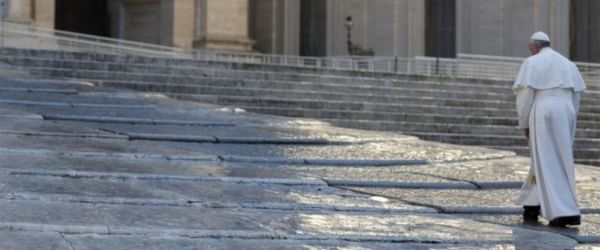1. In the Gospel of this radiant night of the Easter Vigil, we first meet the women who go the tomb of Jesus with spices to anoint his body (cf. Lk 24:1-3). They go to perform an act of compassion, a traditional act of affection and love for a dear departed person, just as we would. They had followed Jesus, they had listened to his words, they had felt understood by him in their dignity and they had accompanied him to the very end, to Calvary and to the moment when he was taken down from the cross. We can imagine their feelings as they make their way to the tomb: a certain sadness, sorrow that Jesus had left them, he had died, his life had come to an end. Life would now go on as before. Yet the women continued to feel love, the love for Jesus which now led them to his tomb. But at this point, something completely new and unexpected happens, something which upsets their hearts and their plans, something which will upset their whole life: they see the stone removed from before the tomb, they draw near and they do not find the Lord’s body. It is an event which leaves them perplexed, hesitant, full of questions: “What happened?”, “What is the meaning of all this?” (cf. Lk 24:4). Doesn’t the same thing also happen to us when something completely new occurs in our everyday life? We stop short, we don’t understand, we don’t know what to do. Newness often makes us fearful, including the newness which God brings us, the newness which God asks of us. We are like the Apostles in the Gospel: often we would prefer to hold on to our own security, to stand in front of a tomb, to think about someone who has died, someone who ultimately lives on only as a memory, like the great historical figures from the past. We are afraid of God’s surprises. Dear brothers and sisters, we are afraid of God’s surprises! He always surprises us! The Lord is like that.
Dear brothers and sisters, let us not be closed to the newness that God wants to bring into our lives! Are we often weary, disheartened and sad? Do we feel weighed down by our sins? Do we think that we won’t be able to cope? Let us not close our hearts, let us not lose confidence, let us never give up: there are no situations which God cannot change, there is no sin which he cannot forgive if only we open ourselves to him.
[Pope Francis, homily at the Easter Vigil 30 March 2013]












